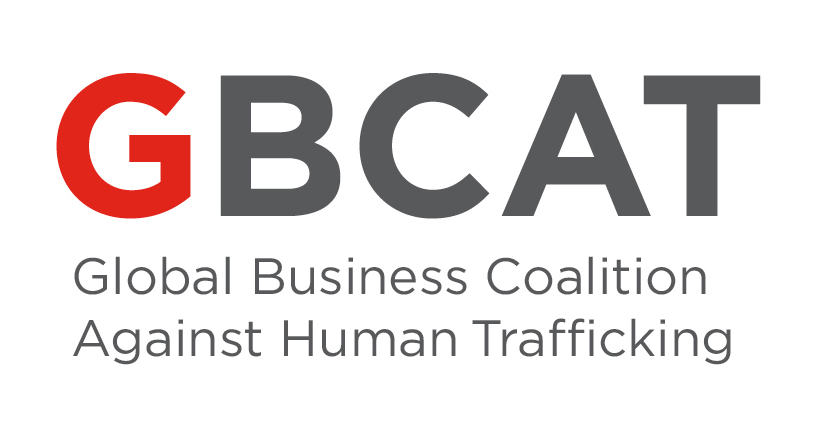By Mark P. Lagon
Mark P. Lagon is Chief Policy Officer at Friends of the Global Fight, and Distinguished Senior Scholar at Georgetown University’s Walsh School of Foreign Service. He is a Co-Founder and Steering Group member of GBCAT. He served as Ambassador-At-Large to Combat Trafficking in Person under President George W. Bush, and as CEO of Polaris.
As a practitioner and academic specializing in global institutions and partnerships, I know first-hand that both are at their best when they articulate a clear vision of how they benefit people and of their particular comparative advantage and value add. These imperatives are especially true for collaborations in the private sector.
The newly defined focus areas of the Global Business Coalition Against Human Trafficking (GBCAT), along with the launch of a new website today, do just that.
The group’s vision of fighting modern slavery focuses on three areas where business can carry out a unique role in the anti-trafficking movement: (1) support small and medium enterprises (SMEs) in our supply chains to understand and right-size their response to modern slavery; (2) support survivors in breaking the cycle of entrapment and getting empowered and employed; and (3) help other global businesses navigate the complex landscape of anti-slavery organizations and resources.
This clarity of vision is where the group has come to eight years after it was conceived.
GBCAT was the brainchild of Robert Rigby-Hall and Dawn Conway, and the product of dialogue they spurred from 2010 to 2012 between corporations attentive to rule of law and justice. They asked me to help get the group off the ground, having served as U.S. Ambassador-At-Large to Combat Trafficking in Persons and as CEO of the leading U.S. anti-trafficking nonprofit, Polaris.
At the State Department, we turned a spotlight on slavery not only for commercial sex but also for labor, including of documented guest workers and people never crossing borders. At Polaris we showed how those outside government bureaucracy could most nimbly operate a national trafficking hotline, and benefit from the technical know-how of a business.
Eight years ago, three things were apparent.
First, the effort to combat trafficking had enlisted the energy and ingenuity of the public and nonprofit sectors, but was leaving a huge asset on the table: business.
Second, to the degree corporations were working on fighting trafficking, it was confined to particular business sectors, such as apparel, electronics, or travel and hospitality; and to confronting child sex trafficking, pioneered by Carlson's rallying businesses to sign the code of conduct of ECPAT.
Third, those business coalitions that did cut across sectors were looking at human rights in general but not at the most acute issue—modern slavery—threatening to taint brands.
Our dialogue among businesses led to the formation of a cross-sectoral business alliance, focused only on human trafficking understood as extreme exploitation for sex and labor. When world leaders met at the UN General Assembly in September of 2012, President Obama announced the launch of GBCAT.
David Arkless, another co-founder and now advisor to GBCAT, went on to champion the 2015 UK Modern Slavery Act, a model for all nations to tackle trafficking through supply chain transparency rather than micro-managerial regulation. At GBCAT’s launch in 2010, David’s company had an acute sense of businesses’ competency compared to government and nonprofit partners, especially when it comes to job training and placement. The latter are, after all, the most significant ways for trafficking survivors to durably reclaim their dignity, and are a core benefit that global businesses can provide to survivors.
Since GBCAT’s founding, there has been a healthy growth in the array of business groupings and dialogues related to trafficking. With BSR now serving as the GBCAT Secretariat, GBCAT is avoiding duplication of other efforts and pursuit of activities with limited impact, focusing instead on three high-impact areas.
First, GBCAT stands as a navigator for the dizzying proliferation of information on hazards of trafficking, of resources and partners, and government requirements and regulations. GBCAT will offer companies a one-stop-shop to navigate this landscape.
Second, large multinationals with elaborate corporate responsibility and supplier accountability units are not the only ones trying to make sense of these problems, partners, and public sector prescriptions. GBCAT and its larger members are specializing in developing tools and resources for the vast majority of business entities in the world—SMEs (companies like Boost Engagement, where Dawn Conway is CEO).
Third, as David Arkless foresaw, GBCAT is partnering to help go beyond shelter, medical care, and social services, which governments and nonprofits deliver, to the game-changer for trafficking survivors—employment. Exemplary NGOs in this area include BEST in Seattle and the Market Project operating in Uganda. GBCAT’s aim is to scale such efforts with a training and job placement platform to match survivors, based on their talents, with employers rightly willing to take a chance on them in the diversity of their workforce.
As a member of the GBCAT Steering Committee, I’ve seen that the expanded GBCAT member companies are “all in” to tackle these three unmet needs. Other businesses should not only take advantage of the advice and best practices that GBCAT has to offer, they should join the alliance and stand shoulder to shoulder with these far-reaching and iconic companies.
Doing so will deliver value for a company’s shareholders, employees, customers, communities, and partners—and most of all for the women and men who avoid or transcend trafficking. Globalization need not cause slavery, and businesses have a valuable leadership role to play in making sure that’s the case.
